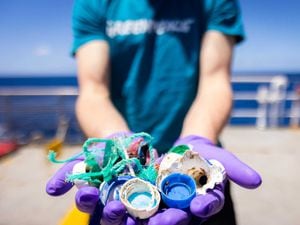Universities step up support for students to fill Covid learning gaps
The cohort who received record high A-level grades may have a ‘false confidence’ about being ready to start degrees, a think tank has warned.

Universities are increasing support for new students this year to help them academically and socially after the pandemic left them with learning gaps.
Students arriving at campuses this autumn will receive more resources, catch-up sessions and check-in calls following 18 months of disruption to their schooling and social lives, vice-chancellors have said.
It came as a think tank warned that the cohort who received record high A-level grades may have a “false confidence” about being ready to start degrees despite missing lessons over two school years.
Ahead of the start of term, Nick Hillman, director of the Higher Education Policy Institute (Hepi), called on universities to focus on those “who struggle early on before problems get too big to be more easily solved”.
He told the PA news agency: “This year’s freshers have had their Year 12 and their Year 13 badly disrupted, and their record high grades may well have given them a false confidence about their preparation for higher education, which could fall apart on contact with university life.
“So I hope there will be additional academic and non-academic support available and I do expect this to be in place.”
The University of Leicester is one of the institutions which has launched a new programme for freshers – which includes running additional academic sessions – to address disrupted learning amid the coronavirus pandemic.
Professor Nishan Canagarajah, vice-chancellor of Leicester University, told PA: “Because of the grade inflation, students might think they have got all the knowledge they need to be successful at university and the reality is some of the material they need they may not have covered because of the disruption.
“The HeadStart programme allows us to fill those gaps and also give them the confidence that they have the knowledge, or, in cases where they don’t have the knowledge, it can provide the actual support to get the knowledge.”
He added that additional support has been introduced to recognise that a “special cohort is coming in with different types of challenges”.

Asked whether he is worried that the disruption to schooling and higher A-level grades during the pandemic years could lead to more university drop-outs, Prof Canagarajah said: “Absolutely, which is why we are doing the HeadStart programme, because that’s precisely my point.”
At Nottingham Trent University, students will be offered extra academic catch-up sessions this autumn, but the focus will be on developing their social skills, according to vice-chancellor Professor Edward Peck.
Students are also being offered more online resources on preparing for university life which have been “refreshed” for this year’s cohort.
Prof Peck said: “When they get to Welcome Week and induction, they’ll find an additional set of activities which is encouraging them to have the confidence to make friends, to try new things, to join societies, so that they overcome what might be social anxiety, perhaps lesser confidence than perhaps we’ve seen in students of previous generations.
“That’s my major concern – how do we enable people to feel like they fit in and thrive socially and personally? And once they’ve done that, I think they’ll do well on their academic studies.”
There will also be more resilience training for students who are vulnerable, as well as catch-up sessions on key core skills – like statistics and report writing.
This autumn, the vice-chancellor is expecting a “greater volume” of check-in calls to be made to students who are not engaging with their courses.
“It’s doing what we do for a greater volume of people, and probably sooner than we normally do, but not trying to make this group feel particularly special or somehow more in need, though they may be,” Prof Peck added.
Universities across the UK are stepping up their efforts to ensure new students are supported on their degree programmes.
In July, the University of Essex announced a “preparation programme” for students starting this year – and the cohort will receive a £250 bursary if they complete the six-week course.
And last month, the Russell Group, which represents the most selective universities across the UK, launched an online resource with the Open University to help students prepare for university studies.
Professor Shearer West, vice-chancellor of the University of Nottingham, a member of the Russell Group, admitted that universities have “concerns” about students transitioning from school to higher education.
She told PA: “It is our responsibility to do everything we can to ensure that we can get the students through the programme. I think the settling period is always the most difficult, the first three months.”
The Russell Group university will be providing a range of resources to help new students prepare for university and enhance their skills for independent study, and specific academic sessions will be run for new undergraduates in each school to equip them for in-person and digital study at the university.
Prof West added: “We’re also looking not just at the educational support we’re giving students, but the pastoral and mental health support as well.
“We have actually significantly increased our funding for that kind of support over the last year, with the expectation that students will need a lot more pastoral and personal guidance, particularly over the next few months.
“The transition, which is always a big transition when students come to university for the first time, is probably going to be an even bigger one this year.”





